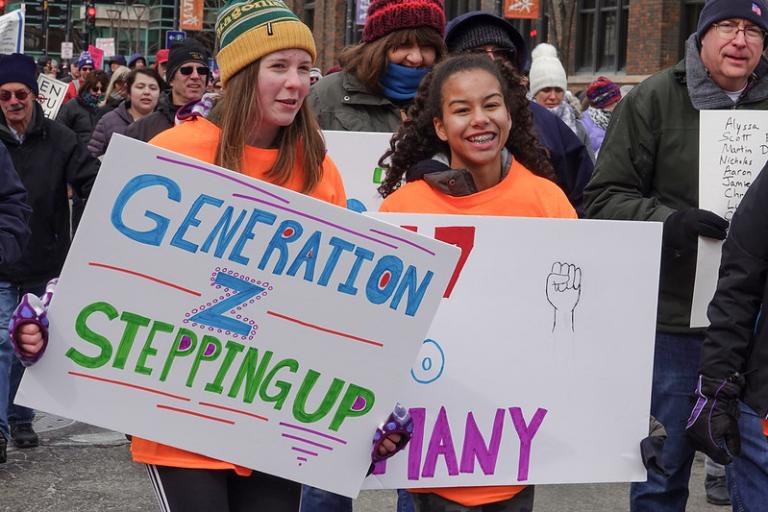
Over the last decades, the number of people who say that they have no religious affiliation–who check “None” on forms that ask their religion–has been going up every year, to the point that the “Nones” now constitute around a fifth of the population, about the same percentage as evangelicals. But now researchers are finding evidence that the number of “Nones” is leveling off. And they are offering reasons why.
Ronat Shimron gives details in an article for the Religion News Service entitled Is the rise of the nones slowing? Scholars say maybe. A big factor in the growth of the Nones has been the succession of generations, with each generation being, on the whole, less religious than the one before. Among Millennials (born between 1981 and 1996), the rate of non-affiliation is 38%. But that cohort is getting old. The rising Generation Z (those born after 1996), however, is not less religious than the Millennials, as had been expected. Among that cohort, the percentage of those who said they have no religion is the same, 38%. Some scholars are concluding from this that the trend towards non-affiliation is no longer growing, so that, in time, the number of “Nones” will level off.
Now 38% non-affiliation is still very high. And the members of Generation Z–those surveyed for this study were between 18 and 23–are, on the whole, too young to have a settled religious affiliation one way or the other. So I’m not fully convinced by this particular study.
I was interested, though, in the possible reasons given for the alleged slowing of the religious decline:
(1) “A changing social desirability bias.” It used to be “socially desirable” to have a religion. Now, not so much. In fact, it can be socially desirable in some settings not to. Marginal members of a religion who didn’t really believe in it have thus felt free to admit that they have no religion. The article suggests that this may be a large factor in the rise of the Nones. Now the sorting is pretty much finished, with believers staying with their religion and non-believers leaving it. So the numbers on both sides have stabilized.
(2) “The culture war sorting is mostly over.” The controversies of the past few decades over homosexuality, abortion, gender issues, etc., have settled down. Some churches take the traditional view, while others have adapted to the new moral climate. People can choose which kind of religion they want or opt out of religion altogether. But it is no longer necessary to reject religion completely over culture war issues.
I find those two reasons pretty shallow. Has religion gained in “social desirability”? If the “culture war” is really over, why are we still so polarized? And if religion has lost the culture war, in what sense does this slow the decline of religion? Wouldn’t that be evidence for the decline of religion? Including in the institutions that have redefined themselves to conform with the new irreligion?
But this last reason given is more intriguing. I’ll quote it:
The country’s growing racial diversity
The United States will soon be a minority-majority country. Scholars project that might happen between 2041 and 2046, depending on the amount of net immigration into the U.S.
That’s important in terms of religion because minority groups such as African Americans, Hispanics and immigrants from Africa and Asia tend to be more religious than American whites. Deckman, for example, found that 67% of Gen Z Hispanics and 66% of Gen Z African Americans have a religious affiliation, compared with only 58% of Gen Z whites. As the pool of whites shrinks, other groups— particularly immigrants — may be growing and they tend to be more religiously attached and attend services more often.
So the “Nones” are largely a white phenomenon, and, as the percentage of whites goes down, the more-religious blacks, Hispanics, and immigrants will reverse the trend and increase the percentage of religious Americans.
Photo by Susan Ruggles, “Generation Z Steps Up!” via Flickr, Creative Commons License














